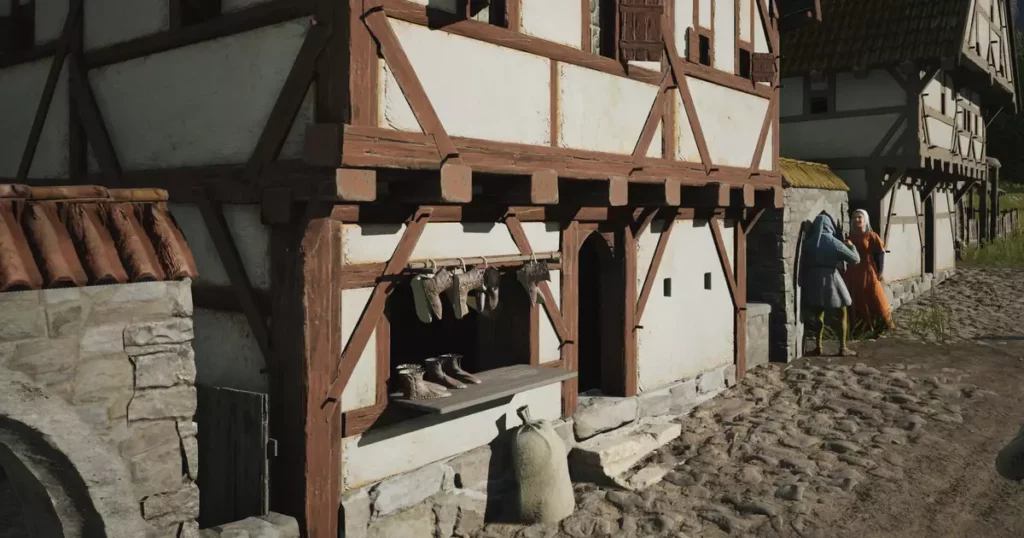In the world of video game development, especially within niche genres like city-building simulators, the temptation for studios is often to flood fans with regular updates, incremental patches, and rapid content drops. However, the reality is that such an approach seldom yields a truly immersive or meaningful experience. Manor Lords, developed by Slavic Magic, exemplifies a different ethos—one rooted in patience, meticulous craftsmanship, and a refusal to compromise on quality. While this stance can be frustrating to an impatient fanbase, it embodies a philosophy that champions depth over immediacy, signaling a commitment to crafting a game that stands the test of time rather than succumb to the fleeting allure of quick fixes.
The developers have consciously chosen to delay major updates in favor of a comprehensive overhaul—an unconventional approach in an era dominated by the temptation to deliver short-term gratification. This decision underscores a fundamental belief: that a game’s core systems must be resilient, realistic, and refined before new features are layered on top. It’s a stance that differs from the mainstream, more commercially driven models, highlighting a dedication to authenticity and gameplay depth that many players overlook or undervalue. For those with a long-term perspective, this patience signifies trustworthiness and a willingness to invest time and resources into creating something more meaningful.
The Significance of Systemic Overhauls Versus Incremental Patches
A pivotal element of Manor Lords’ development philosophy is the comprehensive reworking of its core mechanics. Instead of patching minor bugs or adding superficial content, Slavic Magic is undertaking a “full rework”—a bold move that suggests they recognize the flaws or limitations in earlier versions and are willing to re-engineer the game from the ground up. This is a strategic choice that defies conventional wisdom in the gaming industry, which often celebrates quick updates to keep audiences engaged. Here, the developers are prioritizing long-term stability and immersion, even if it means alienating some players temporarily.
Such a radical overhaul is indicative of a willingness to learn from past mistakes—both in gameplay design and in development processes. It’s a recognition that superficiality breeds disillusionment and that only through deep, systemic changes can Manor Lords truly offer something unique amidst a saturated genre of city builders. This approach elevates the game to a potential leader in authenticity, where strategic planning, environmental dynamics, and historical plausibility form the backbone of gameplay mechanics.
Redefining World-Building with Environmental Precision
One of the most ambitious and insightful changes coming to Manor Lords is a complete overhaul of its environmental and building interaction systems. Previously, radius-based effects created problems—effectively forcing players into frustrating spatial conflicts that broke immersion. Instead of continuing down this rabbit hole, the developers have opted for a nuanced environmental matching system. Now, map regions are designated with labels like Woodland, Farmland, Rural, or Urban—each carrying specific benefits and strategic implications.
This change is more than just a cosmetic upgrade; it fundamentally recalibrates how players approach settlement development. For example, placing apiaries in woodland areas isn’t merely for aesthetic diversity; it enhances pollination and yields, making every placement a strategic decision rooted in ecological logic. This move aligns with a broader ideological stance: that a medieval city builder should reflect real-world constraints and opportunities—not just serve as a playground for superficial customization.
The game’s new “Divided” map concept, featuring natural barriers such as mountain ranges, adds further layers of realism and challenge. This isn’t simply about making city planning more complicated for complexity’s sake. It’s an intentional reflection of medieval realities, forcing players to adapt and innovate rather than relying on flat, predictable terrain. Tactically, this invites a more organic flow of settlement growth—where environmental features influence political, economic, and military considerations.
Designing a Future of Meaningful Interactions
What truly sets Manor Lords apart, even amidst delays, is its bold focus on deeper, more meaningful interactions between environmental and structural systems. New features like artisan stations, shop fronts, and fortified structures with see-through walls aren’t just superficial embellishments—they symbolize a thoughtful approach to tactical gameplay and world-building. These aren’t mere decorative flourishes but functional components that encourage players to strategize and engage with their settlement in a more intricate way.
The emphasis on environmental interactions, environmental placement, and building relationships suggests a vision for a game that evolves beyond traditional city simulations. Instead of just placing buildings to generate income, players will need to consider ecological factors, resource flows, and defensive positioning. This makes every decision more impactful, turning city-building into a complex web of ecological, economic, and military considerations—reflecting the convoluted reality of medieval life.
The Middle Path: Cautious but Defiant
Criticism of Manor Lords’ delays is understandable; many players equate quick updates with progress and vitality. However, the developers’ strategic restraint demonstrates a refusal to compromise on craftsmanship and realism. In doing so, they challenge the notion that “more is better” in game development. Instead, they suggest that controlled, thoughtful evolution can yield a product that resonates more deeply and endures beyond fleeting trends.
A game of this scope demands patience—yet it also demands a critical eye. Slavic Magic’s approach might alienate those chasing instant gratification, but their willingness to take risks and prioritize quality over speed speaks volumes about their long-term vision. Whether Manor Lords becomes a genre-defining masterpiece or not is secondary; what’s certain is that the game’s current trajectory aligns with a broader belief in responsible, principled game design—one that champions realism, strategic depth, and a respect for historical authenticity.
The gamble the studio takes by delaying these monumental updates indicates they understand the significance of creating a compelling core experience. It is a daring move that may ultimately set a new standard for how complex strategy and city-building games are developed and appreciated—if they pull it off.









Leave a Reply